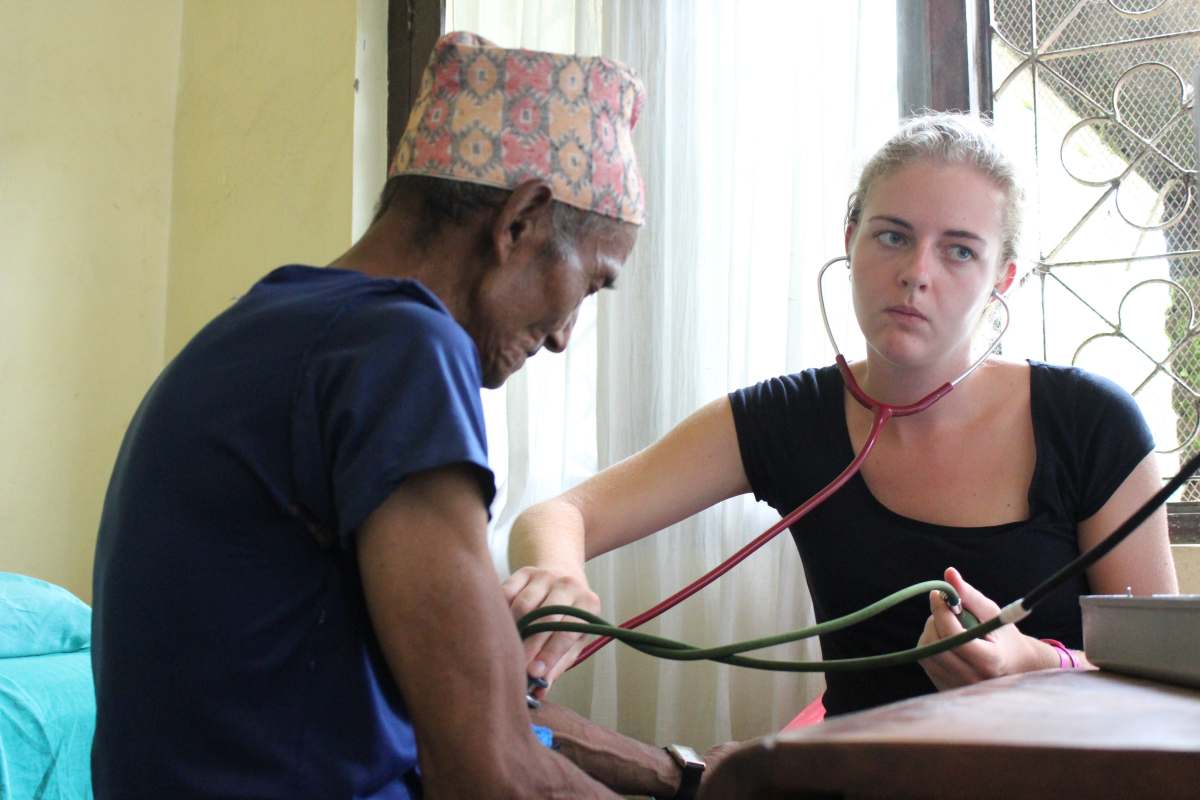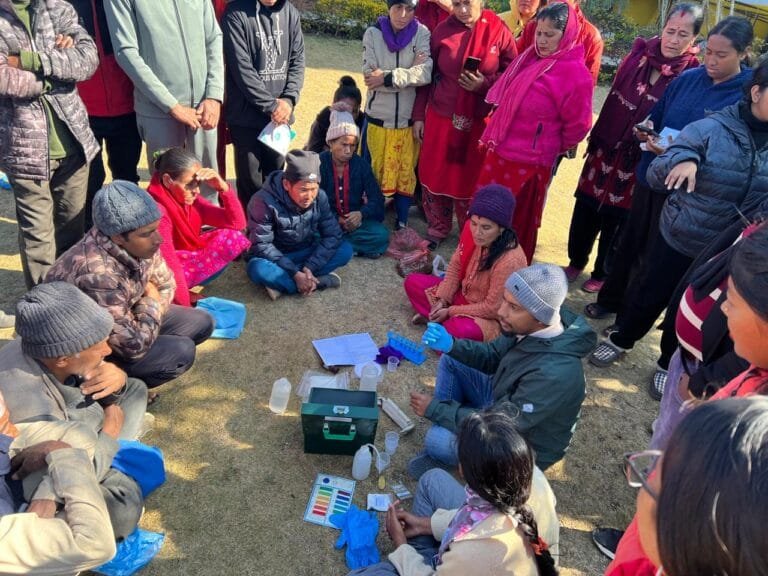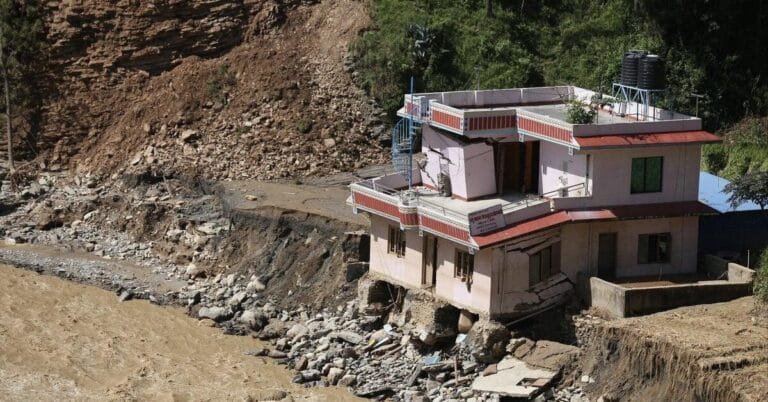Establishing a Specialized Health Center at NaraTika Community Learning Centre: Transforming Healthcare in Nishankhe, Okhaldhunga
Imagine living in a remote community where specialized healthcare services are rarely accessible. For residents of Nishankhe, Okhaldhunga, this has long been a reality. At NaraTika Community Learning Centre (NTCLC), we plan to establish a specialized health center that offers advanced treatments, diagnostic services, and consistent medical care. Our vision includes a permanent general practitioner (GP), on-site nurses, and specialized doctors—such as cardiologists, pediatricians, gynecologists, dentists, and orthopedics—who visit every other weekend.
This unique initiative aims to bridge critical healthcare gaps in a location where no specialty medical clinic or specialized healthcare facility currently exists. Keep reading to find out how you can support this groundbreaking effort, why it matters, and how it will reshape the health landscape of remote communities.
Specialized Health Center at a Glance
| Key Feature | Details |
| Location | Nishankhe, Okhaldhunga |
| Permanent On-Site Staff | GP (General Practitioner) + team of nurses |
| Visiting Specialists | Cardiologist, pediatrician, gynecologist, dentist, orthopedic etc. specialist (every other weekend) |
| Goal | Provide consistent, advanced healthcare services in a region lacking any specialty medical Health center |
| Services | Routine check-ups, specialized consultations, diagnostic tests, preventive programs, and community health outreach |
| Required Resources | Basic diagnostic equipment, specialized apparatus, patient consultation rooms, and staff training |
| Community Impact | Reduced healthcare disparities, improved medical access, and overall upliftment of rural families |
| How to Help | Donate funds, volunteer expertise, or partner through internships with organizations like ViN |
| Long-Term Vision | Establish a self-sustaining specialized healthcare facility that addresses current gaps and expands over time |
| Website | www.ntclc.org |
Why a Specialized Health Center in Nishankhe Is Essential
Primary healthcare is often inadequate in many parts of rural Nepal, and specialized health services are virtually non-existent. Families travel long hours, sometimes even days, to reach the nearest specialized healthcare facility or specialty Health center for critical treatments. This reality can lead to delayed diagnoses, poorer outcomes, and increased financial burdens.
By establishing a specialized health center in Nishankhe, we aim to deliver critical healthcare services directly to those who need them most.
Addressing Healthcare Gaps in Remote Communities
- Lack of Specialists: At present, families in Okhaldhunga must journey to larger cities for specialized consultations, placing an immense strain on limited financial and transport resources.
- Emergency Care Deficit: Emergencies like heart attacks, complications during childbirth, or fractures require immediate specialist attention. Without on-site resources, these emergencies can lead to higher mortality rates.
- Preventive Health: Chronic diseases (e.g., heart disease, diabetes) often remain undiagnosed until they escalate into life-threatening conditions. Local specialty healthcare services can offer preventive screenings and timely interventions.
The Vision of NaraTika Community Learning Centre
At NaraTika Community Learning Centre, we believe in holistic community development. Beyond our educational and empowerment programs, healthcare is the most critical need in remote regions. By setting up a specialized medical Health center, we provide essential treatments and align with our larger mission: improving the overall quality of life for families in Nishankhe, Okhaldhunga.
Core Components of the Planned Specialized Health Center Facility
GP and Nursing Team
A General Practitioner (GP) stationed at the Health center ensures continuous primary care and health counseling. Nurses will assist with daily tasks ranging from essential wound management to patient education. This setup ensures that the community receives:
- Immediate Attention: Patients no longer need to trek to distant clinics for minor ailments or injuries.
- Preventive Screenings: Routine blood pressure checks, sugar tests, and health education sessions become part of daily life.
- Referral Guidance: In cases requiring advanced care, the GP can guide and refer patients to visiting specialists or other medical institutions.
Visiting Specialist Doctors
Specialized doctors from cardiology, pediatrics, gynecology, dentistry, and orthopedics will operate dedicated clinics every other weekend. This roster of experts transforms the Health center into a specialized treatment center, providing essential specialized medical services under one roof. The benefits:
- Early Detection: Cardiologists can spot heart conditions early, pediatricians can monitor developmental milestones, and gynecologists can perform vital screenings for women’s health.
- Follow-Up Care: Periodic visits allow patients to receive ongoing treatments, reducing the likelihood of complications.
- Community Awareness: Specialist presence can boost local awareness about the importance of specialized healthcare and regular check-ups.
Diagnostic and Laboratory Facilities
Specific diagnostic tools—like X-ray machines, ultrasound devices, and essential lab equipment—are crucial for a specialty medical clinic to function effectively. While advanced infrastructure may not be immediately available, we plan to secure fundamental devices that allow for:
- Essential Imaging: Identifying fractures, early signs of pneumonia, or other anomalies.
- Laboratory Tests: Blood, urine, and other routine analyses are vital for diagnosing infections or managing chronic conditions.
These investments will equip our Health center to handle the bulk of diagnostic needs within the local community, drastically cutting travel time and expenses for patients.
Impact on Women’s and Children’s Health
Maternal Care
In rural areas, maternal mortality and complications during childbirth remain pressing concerns. A specialized healthcare facility featuring gynecological services can:
- Provide prenatal check-ups and nutritional guidance.
- Assist in labor risk assessments, thus minimizing emergency deliveries in unprepared settings.
- Offer postnatal support for both mother and newborn.
Pediatric Services
Children in remote villages often suffer from preventable illnesses due to a lack of timely medical intervention. A visiting pediatrician at the specialty medical Health center can:
- Monitor growth charts, ensuring children hit developmental milestones.
- Administer immunizations and offer immediate treatment for infections.
- Educate parents about balanced nutrition and hygiene practices.
Combining maternal and pediatric expertise saves lives and fosters a healthier future generation in remote areas.
The Crucial Role of Cardiology, Dentistry, and Orthopedics
Cardiology
Cardiovascular diseases are on the rise even in rural settings, partly due to lifestyle shifts and a lack of preventative screening. By hosting cardiologists, our specialty health clinic can:
- Conduct EKGs and other routine cardiac evaluations.
- Advise on lifestyle changes to manage or prevent heart conditions.
- Provide referrals to tertiary facilities only when more advanced treatments are required, reducing unnecessary travel.
Dentistry
Dental issues often get neglected due to limited specialty care services in rural areas. Our center aims to incorporate:
- Preventive dental check-ups, focusing on oral hygiene education.
- Simple procedures like fillings and tooth extractions to alleviate pain and infection risks.
- Periodic specialty treatments, e.g., braces or root canals, if feasible.
Orthopedics
With physically demanding lifestyles, rural communities frequently face musculoskeletal injuries. An orthopedic specialist in our specialty medical facility can address the following:
- Fracture management and casting.
- Joint pains, arthritis, and other chronic conditions.
- Education on workplace ergonomics to prevent injuries during farming or construction activities.
Data and Statistics Supporting the Need
- Distance Barrier: According to a 2020 Nepal Health Survey, nearly 60% of rural residents must travel over two hours to reach the nearest specialized medical services.
- Mortality Rates: A World Health Organization (WHO) report reveals that lack of immediate specialist care in emergencies raises mortality rates in remote regions by up to 25%.
- Chronic Disease Prevalence: According to Nepal Health Survey Report (MoHP) about 12% of Nepal’s rural population suffers from undiagnosed chronic conditions like hypertension or diabetes, often discovered too late for effective intervention.
These figures highlight why a local specialized health center can transform rural Okhaldhunga. With accessible specialized health institutions and consistent healthcare interventions, these alarming statistics can be reversed over time.
Funding the Specialized Health Center Facility
Equipment and Infrastructure
Launching a specialty medical clinic or specialized healthcare facility is capital-intensive. Essential needs include:
- Diagnostic Tools: Ultrasound machines, ECG devices, and X-ray units.
- Laboratory Setup: Microscopes, test kits, and sterile workstations.
- Patient Care Items: Beds, monitoring devices, and emergency supplies.
Operational Costs
Beyond the initial setup, recurring operational costs are vital for sustainability:
- Medical Staff Salaries: Competitive wages for GPs, nurses, and administrative personnel.
- Visiting Specialist Fees: Covering transportation and professional fees to encourage repeated visits.
- Maintenance and Utilities: Ensuring the facility remains functional year-round.
Community Support and Donations
A large part of this project relies on fundraising. With minimal regional healthcare services, philanthropic contributions can make a massive difference. Donations, grants, and sponsor partnerships will help us procure equipment faster and maintain consistency. Every dollar matters when establishing a specialized health center in a remote community.
Voices from the Community and Beyond
Local Testimonials
“I lost my father to a heart attack because we couldn’t reach a specialist in time. This new center will save countless lives.”
— Devi, Nishankhe Resident
“My daughter has chronic dentHealth Centeral issues, and traveling to the city every time is expensive. A specialized clinic here is a blessing.”
— Pema, Community Member
Expert Endorsements
“Timely diagnoses can avert 80% of complications in treatable conditions. Establishing a specialized healthcare facility in remote areas revolutionizes local health outcomes.”
— Dr. Sanjeev Bhandari, Medical Specialist
“In my 15 years with rural clinics, the biggest challenge is bridging specialist gaps. This initiative by NTCLC sets a new gold standard.”
— Dr. Kamal Thapa, Public Health Advocate
Success Stories Elsewhere
Rural specialty clinics have proven their value globally. In India and Sub-Saharan Africa, collaborative models where specialists visit periodically have shown a 30% drop in preventable hospital admissions. We aim to replicate such success, making specialized medical care a local norm rather than a distant luxury.
Frequently Asked Questions About Specialized Health Center in Rural Settings
1. What are the main challenges in launching a specialized health center in a remote area?
The biggest challenges include securing funding, recruiting qualified specialists willing to travel, ensuring consistent supplies, and gaining community trust. Additionally, reliable infrastructure like roads, electricity, and communication networks can influence day-to-day operations.
2. Why not just send patients to existing urban specialty medical facilities?
Frequent trips to urban centers are costly, time-consuming, and physically taxing, especially for seriously ill or elderly patients. A local solution removes these barriers, delivering timely care where people live.
3. How will specialized doctors be motivated to visit Nishankhe regularly?
We plan a combination of incentives—competitive compensation, structured schedules, safe accommodation, and logistic support. Moreover, given the proper framework, many specialists are eager to serve communities with limited access to healthcare.
4. Will the specialized health center also handle emergencies?
Yes. While we may not perform significant surgeries initially, essential stabilization and emergency protocols will be in place. We’ll also coordinate with higher-level hospitals when advanced procedures are required.
5. What if the clinic’s demand grows beyond current capacity?
That’s part of our long-term vision. By collecting data on patient volumes and healthcare needs, we can gradually scale the facility—adding more equipment, specialists, and space as resources allow.
6. How do I know donations are used effectively for the specialized healthcare facility?
Transparency is paramount. We will maintain detailed financial records, publish periodic reports, and invite donors to visit the site. Partnerships with reputable charities like ViN also ensure accountability.
7. Can I volunteer even if I’m not a medical professional?
Absolutely. We need administrative help, fundraising experts, translators, educators, and more. Anyone passionate about advancing healthcare in remote communities can make a difference.
Step-by-Step Plan for the Specialized Health Center
Phase 1: Resource Mobilization
- Fundraising Campaign: Launch local and international drives targeting philanthropic institutions, charitable trusts, and corporate social responsibility (CSR) funds.
- Equipment Procurement: Focus on essential diagnostics first, including portable ultrasound machines and basic lab tools.
Phase 2: Infrastructure and Staff Onboarding
- Facility Construction: Modify existing NaraTika Community Learning Centre structures to accommodate patient wards, consultation rooms, and labs.
- Recruitment: Hire a GP, a team of nurses, and administrative personnel. Confirm contracts with visiting specialist doctors.
Phase 3: Pilot Operation and Feedback
- Soft Launch: Start with weekly general consultations and monthly specialist visits. Gather community feedback, identify operational challenges, and adapt.
- Training: Ensure all staff are updated on medical guidelines, administrative protocols, and emergency procedures.
Phase 4: Comprehensive Specialized Healthcare Services
- Regular Specialist Schedule: Host specialized doctors (cardiology, pediatrics, gynecology, dentistry, orthopedics) every other weekend.
- Outreach Programs: Conduct health camps, educational seminars, and community screenings for early disease detection.
Phase 5: Expansion and Collaboration
- Additional Services: Based on demand, introduce services like mental health counseling, advanced imaging (CT/MRI), and telemedicine solutions if feasible.
- Partnerships: Collaborate with higher-level hospitals for referrals and partner with local NGOs for maternal health, child nutrition, and elder care initiatives.
Potential Long-Term Benefits for Okhaldhunga and Beyond
Economic Uplift
When healthcare is localized, communities save on travel and lodging costs. New medical, administrative, and logistical jobs also emerge, pumping resources back into the local economy.
Health Education and Prevention
A local specialty health clinic fosters a culture of preventive care. Community outreach teaches people the importance of regular check-ups, immunizations, balanced diets, and early detection. This shift from reactive to proactive health management can dramatically improve life expectancy in the region.
Decreased Strain on Urban Hospitals
When fewer patients flock to crowded urban hospitals for standard specialized care, city-based institutions can focus on critical or advanced cases. This balancing act enhances the efficiency of the overall healthcare system.
Social Cohesion
A functioning specialized medical center often becomes a focal point for community gatherings and health-related events, strengthening social ties. Shared involvement—from fundraising to volunteering—nurtures a sense of collective responsibility and empowerment.
How Specialty Care Center Partnerships Strengthen Impact
Collaborations with established medical institutions can amplify our success. For instance:
- Training Programs: Medical universities or nursing colleges can rotate interns or residents at the center, enriching practical training and bolstering staff capacity.
- Telemedicine Linkages: Partnering with tech-driven healthcare firms can introduce telehealth consultations, broadening the range of specialty care services available in real time.
- Research and Data: Academics or NGOs can conduct public health research, shaping evidence-based strategies for improving rural healthcare.
By forming these partnerships, the specialized treatment center evolves into a hub of innovation and knowledge-sharing, adding layers of benefit to the local populace.
Real-Life Anecdote: A Day in the Life of a Visiting Specialist
Imagine a Saturday morning when Dr. Sharma, a seasoned cardiologist, arrives at the specialty medical clinic at NaraTika. Patients queue, many of them elders experiencing chest pains or newly diagnosed with hypertension. After basic vitals, Dr. Sharma uses a portable ECG machine to identify heart arrhythmias or irregular rhythms—an unheard-of procedure in remote villages just a year ago.
A prompt prescription or lifestyle advice is offered. In some cases, urgent referrals to advanced hospitals are arranged. By late afternoon, Dr. Sharma had seen over 20 patients who otherwise might never have received specialized cardiology input. She leaves behind local nurse interns with instructions for follow-up care, ensuring continuity. This cycle repeats fortnightly, sowing seeds of better heart health across the region.
Ensuring Sustainability and Continuous Improvement
Community Engagement
Long-term sustainability often hinges on local buy-in. Everyone should feel invested in the center’s success, from villagers to regional influencers. Active community representation in healthcare committees fosters ownership and accountability.
Ongoing Training
Medical protocols evolve rapidly. We’ll regularly update staff through workshops, online seminars, and mentor-mentee relationships with seasoned professionals. Continual upskilling guarantees quality healthcare and staff retention.
Financial Stability
While initial fundraising is essential, generating steady revenue streams—affordable patient fees, philanthropic grants, or insurance collaborations—secures the center’s longevity. Sliding fee scales ensure even low-income families can access specialized treatment.
Actionable Insights for Supporters and Donors
- Sponsor Diagnostic Equipment: Contribute toward purchasing ECG machines, ultrasound devices, or laboratory apparatus.
- Volunteer or Intern: If you have medical or administrative skills, your expertise can shape policies, train local staff, or organize health camps.
- Spread the Word: Share updates about the center on social media, inspiring others to become donors or volunteers.
- Organize Fundraising Events: Collective efforts raise significant capital, whether through a virtual marathon, charity dinner, or online campaign.
- Partner with ViN: Volunteers Initiative Nepal (ViN) is a reputed organization with robust volunteer programs and community outreach. By teaming up, you amplify your impact on the ground.
Conclusion—Why Your Involvement Matters
Establishing a specialized health center at NaraTika Community Learning Centre goes beyond building a physical clinic. It’s a transformative leap toward health equity, a chance to reduce mortality rates, and an opportunity to uplift entire families who have long been underserved. With specialized doctors, vital diagnostic tools, and unwavering community support, we can mold Nishankhe, Okhaldhunga, into a shining model for rural healthcare innovation.
You directly participate in this life-changing endeavor by donating, volunteering, or simply spreading the word. Together, we can lay the groundwork for a self-sustaining specialized healthcare facility, ensuring that remote regions no longer stand on the fringes of medical excellence.
Partner with Volunteers Initiative Nepal (ViN)
Before wrapping up, we invite you to consider partnering with Volunteers Initiative Nepal (ViN). Whether you volunteer your time, intern, donate, or encourage your network to learn about our cause, your engagement fuels meaningful change. ViN works tirelessly to empower communities across Nepal through education, healthcare, and sustainable development programs.
- Volunteer: Contribute your professional skills—medical or otherwise—to help launch essential health camps and training.
- Intern: Gain hands-on experience in community healthcare management, medical outreach, or social work.
- Donate: Even a small donation can supply critical equipment, subsidize specialist visits, or expand our facility.
- Share this article with friends, families, or on social media. Greater visibility means more supporters will join our mission.
Together, we can shape a future where no one in Nishankhe or beyond must compromise on health due to location or financial constraints.





